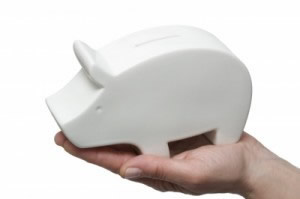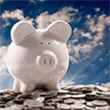Savings accounts - nest egg builders or wastes of time?
Published 10/6/10 (Modified 3/17/11)  By Peter Andrew
By Peter Andrew
You say tomatoes...
Do you think the Federal Reserve should be more like the Bank of England? No, I'm not suggesting it should employ people with funny accents or lose most of its international influence. But perhaps its people could learn something from their opposite numbers in London about plain speaking. The Daily Telegraph, a UK-based newspaper, reported at the end of September 2010 some remarks by the deputy governor of the Bank of England. He told British savers to, "stop moaning and start spending."
Well, that's blunt, and you can't imagine a senior Fed official coming out with anything like it. However, if you look at what the Fed does, rather than what it says, it's hard to escape the conclusion that it's trying to send a similar message to Americans. Perhaps it should just come clean like the Brits.
Saving accounts that lose you money
Partly thanks to the Fed, interest rates right now are generally at or near historic lows. That's great if you need a mortgage, but bad news if you're saving up for the down payment you'll need to get that home loan - or for anything else for that matter. Indeed, if you factor in fees and inflation, you can actually come out at a loss by keeping your money in some savings accounts.
But don't despair. It may be a long time before we again see the sorts of high rates for savers that
Read the full article » If you're searching for a list of the best online banks for your savings, then you've arrived at the right place. One of the most common, if not the most often asked question I get as a personal finance blogger is which bank I would recommend to those looking to get the best interest rate on their money.
If you're searching for a list of the best online banks for your savings, then you've arrived at the right place. One of the most common, if not the most often asked question I get as a personal finance blogger is which bank I would recommend to those looking to get the best interest rate on their money.